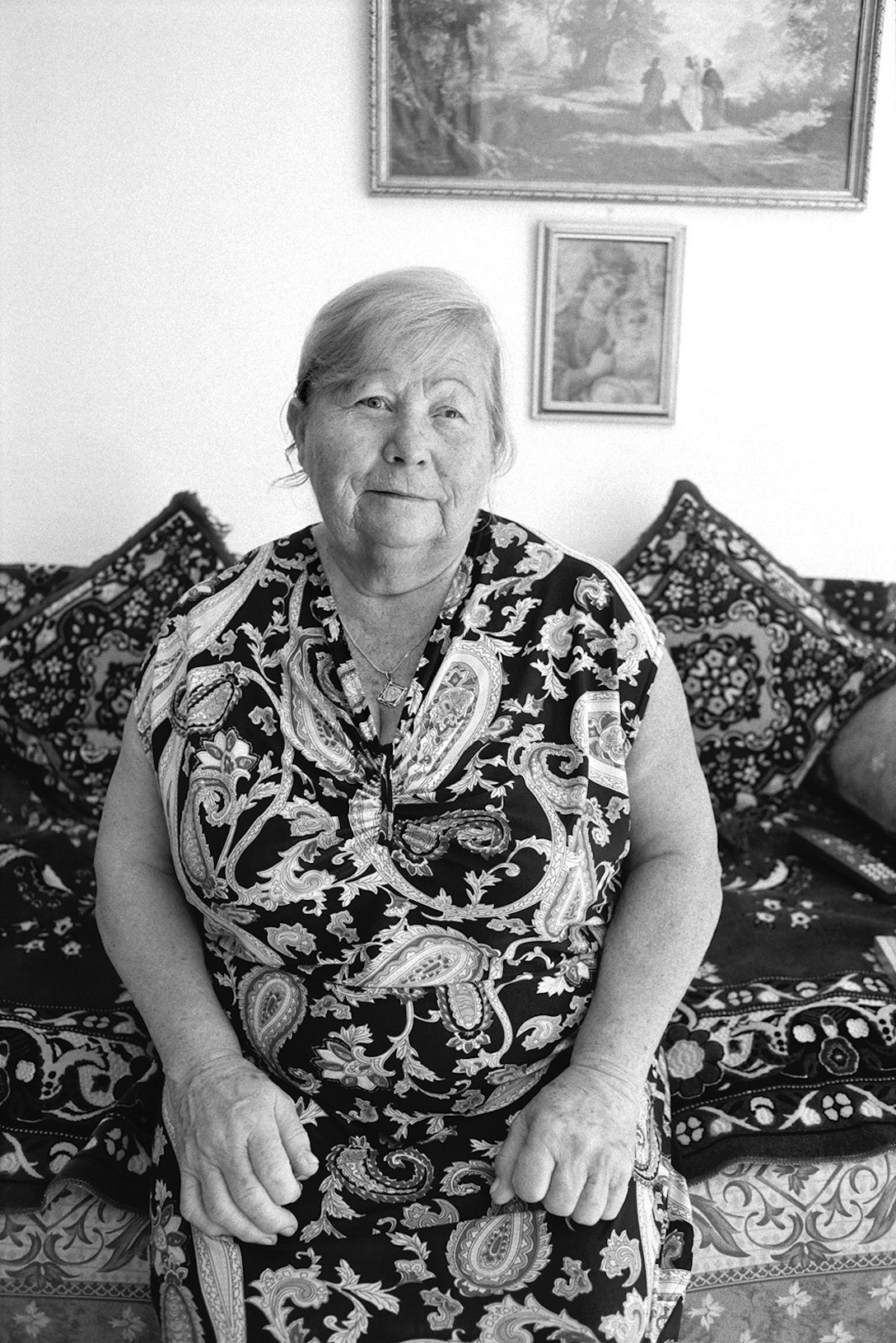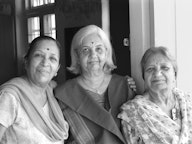
Jaroslava Lewczki
Haifa, Israel
A SMUGGLER IN THE GHETTO
I would carry [supplies] to the ghetto. Mother would buy [supplies], and our neighbour, she had a garden, she was growing vegetables. I carried food in my school bag; at the bottom there was food, hidden by my notebooks that were put on top. I would go with my sister and with my friend. We would be very happy to do that because we would get sweets. We would go from behind, would carry everything, through a channel, to the ring bell, near a column. I would go alone, my sister and my friend would wait at the street. My grandfather was always in contact with people in the ghetto. Later he had to hide them. We were all neighbours, all friends. Our neighbours knew we were helping Jews; they did not denounce us to the Germans. You know, we were kids then. We knew that Germans were beating people, we saw what was going on. They killed a woman in front of my eyes. And every day we would go as if we would be scouting out, if there would be an action, because we knew that there would be a car going to the forest, and then people would follow, and bid farewell to the people we knew. They would wave hands to us and say goodbye. It was a tragedy. My mother and my father would close the curtains.
Daniel’s Reflection
It was a great honor to meet Jaroslava Lewczki in Haifa, Israel. Jaroslava was born in 1935 in Zloczew, in the Ukraine. She grew up in the Greek Catholic Church. During the war, Jaroslava and her family helped smuggle food to the ghetto and to hide Jews. In 1989, Jaroslava was declared a “Righteous Gentile” by Yad Vashem, the Israeli Holocaust Memorial, and was awarded Israeli citizenship. For me there are two spiritual lessons in this great heroism of Jaroslava and her family.
First, what would I have been willing to do if I was a Ukrainian non-Jew during World War II, surrounded by Nazi atrocities? What am I doing about the humanitarian crises of today? Would I take in, hide, and feed my neighbor? Who do I define as a neighbor? I find myself doing very little for others outside my business and family. This interview was a real wake-up call for me. So the stresses of my business and busy-ness with my family are false objections to why I’m not doing more. I understand there is a difference between hiding a neighbor who would otherwise be murdered and feeding people at a soup kitchen. But Judaism teaches us that whomever has saved a life, it is considered that he has saved an entire world. So first, I am confronted that I must be more outraged at today’s injustices and not comfortable in my upper-middle-class bubble. I don’t have comfortable answers to this challenge.
Second, if we receive a reward for doing a righteous deed, does it negate the good deed? Is the heroism of Jaroslava any less because she received a candy each time she delivered food to the ghetto? I asked my friend, Rabbi Menachem Creditor, for his perspective on this. And, apparently, the answer according to Judaism is that a good deed does not require altruistic intent. Rabbi Creditor said, “When a person does a good deed, their motive is irrelevant. Of course having pure intent is ideal, as care in its most selfless form is the closest to godliness people can be. As the ancient sage Antigonos of Socho taught in the name of Shimon the Righteous, ‘Do not be as servants who are serving the master in order to receive a reward, rather be as servants who are serving the master not in order to receive a reward’ (Pirkei Avot). But, in the absence of that sublime state, doing the right thing less selflessly still effectuates a good result. Good done for the sake of goodness is the highest level of human activity. But the most important thing is that good happens in the world, regardless of specific intentionality, especially since developing the habit of doing good can create an ever-deepening virtuous cycle. Jewish tradition spells it out quite succinctly: ‘out of performing a good deed with an ulterior motive there comes doing one for its own sake” (Talmud, Pesachim). Even more simply: It is always the right time to do the right thing.”
So to do the right thing, I don’t even need to want to do the right thing. I just have to do it. You might say this is the positive upside to Judaism’s focus on actions more than faith. Christianity (the Bible) also says that faith without works is dead. The action, not the feeling or intention, is what matters. So where does this leave me? It leaves me grateful to the Jaroslavas of the world who, even as children, helped Jews during World War II. It leaves me grateful to all those who are helping those in need today. And it reminds me that, whether I like it or not, I am a person of means who has the ability to be helping much more than I am. I need to get beyond my own busy-ness before it’s too late for the person, or people, I could have helped.
Permissions and References
Explore the portraits by theme
- happiness
- grief
- addiction
- sexuality
- sobriety
- transgender
- alcoholism
- suicide
- homelessness
- death
- aggression
- cancer
- health
- discipline
- abortion
- homosexuality
- recovery
- connection
- enlightenment
- indigenous
- depression
- meditation
- therapy
- anger
- forgiveness
- Doubt
- interfaith
- worship
- salvation
- healing
- luminaries

